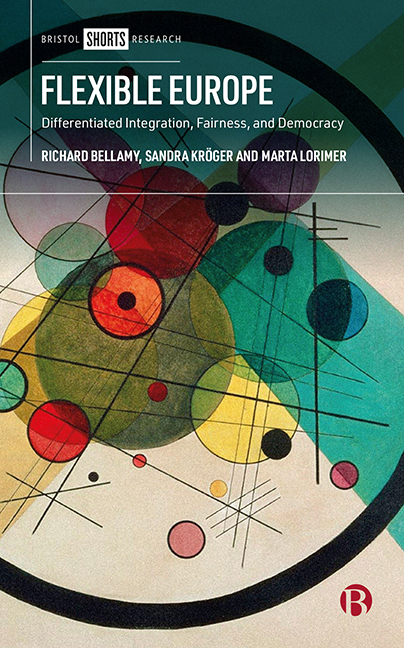Book contents
- Frontmatter
- Contents
- List of Tables
- List of Abbreviations
- About the Authors
- Acknowledgements
- Introduction
- PART I Normative Perspectives on Differentiated Integration
- PART II Political Party Perspectives on Differentiated Integration
- Conclusion
- Appendix A List of Respondents
- Appendix B Interview Questions
- Appendix C Survey Questions
- Notes
- References
- Index
four - Party Views on Differentiated Integration
Published online by Cambridge University Press: 15 September 2022
- Frontmatter
- Contents
- List of Tables
- List of Abbreviations
- About the Authors
- Acknowledgements
- Introduction
- PART I Normative Perspectives on Differentiated Integration
- PART II Political Party Perspectives on Differentiated Integration
- Conclusion
- Appendix A List of Respondents
- Appendix B Interview Questions
- Appendix C Survey Questions
- Notes
- References
- Index
Summary
What do political party actors think about the questions we have tackled so far? How do they conceive of the substantive fairness of DI, its democratic credentials, and do they link DI to democratic backsliding? Before we delve into these issues, this chapter provides a general overview of political parties’ views on DI. Whereas recent research has emerged on how governments and citizens approach DI (de Blok and de Vries, 2020; Leuffen et al, 2020; Winzen, 2020), political parties’ views of DI have received limited attention so far. We address this gap in the literature by focusing on how political parties perceive of DI and which factors shape their assessments. We start by discussing the literature on political parties, European integration, and DI and present how we analysed our interviews. We then present party views on DI and relate them to the key cleavages that shaped their views. The conclusion summarizes the findings.
Political parties, European integration, and differentiated integration
Existing research on the views of political parties on the EU has focused extensively on why political parties support or oppose European integration. Ideology occupies a prominent place in these accounts because while parties may shift their approach due to strategic considerations (Meijers, 2017), their ability to do so is constrained by their voters and activists, decision-making structures, and their programmatic reputation (Hooghe and Marks, 2018, p 112). Two ideological cleavages are considered as particularly important in explaining party views on European integration: the socio-economic left‒right cleavage, and the socio-cultural libertarian/cosmopolitan‒authoritarian/nationalist cleavage (Prosser, 2015; Hooghe and Marks, 2018; Schafer et al, 2021).However, whereas extensive research exists on political parties’ positions on European integration, we still know little about how political parties approach DI and what motivates their positions in that regard (for exceptions, see Leruth et al, 2020; Kroger et al, 2021).
How might one expect political parties to approach DI? Expectations are difficult to arrive at given not only the two cross-cutting cleavages mentioned earlier, which are further accentuated by differing national contexts, but also the different forms DI can take. For example, some political parties might view sovereignty DI as a positive development since it accommodates domestic preferences and diversity in the EU.
- Type
- Chapter
- Information
- Flexible EuropeDifferentiated Integration, Fairness, and Democracy, pp. 89 - 106Publisher: Bristol University PressPrint publication year: 2022



